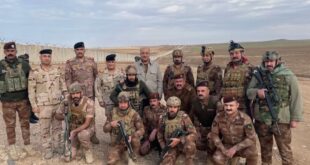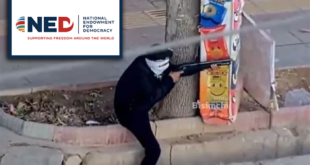Three decades on, it is still not known what happened to dozens of Kosovo Albanian conscript soldiers who went missing while serving in the Yugoslav People’s Army during the violent break-up of Yugoslavia.
Muhamet Gashi remembers that it was a rainy day on June 30, 1991 when his son Vesel left to begin his mandatory military service.
Vesel had just turned 21, Kosovo was still part of the united Yugoslav state, and in recent months he had already received three call-ups to join the Yugoslav People’s Army. This time he couldn’t put it off any longer.
Gashi said that military police came to his house in Studenqan, a village six kilometres from the southern Kosovo town of Suha Reke/Suvareka, several times to look for his son.
“[Vesel] received three invitations from the Army. The fourth time they came to our house and told us that if he keeps refusing the call-up, he will go to jail and not into the army,” said Gashi, who is now 77, told BIRN at the family house.
At that point, ethnic tensions were rife and the bloody collapse of federal Yugoslavia was already looming. Newspapers were full of reports of the killings of Kosovo Albanians serving in the Yugoslav military.
“The murder of Albanians in the military was something that was well-known. We knew that there was no safety for Albanians,” Gashi said.
“In his attempt to escape the Army, Vesel went into hiding at his uncle’s in another village. But the call-up was such that if he did not answer, he would be arrested so he was forced to go.”
Vesel was deployed to a barracks in the Croatian town of Bjelovar. His family only managed to talk to him three times by phone while he was serving with the military.
“He kept talking too little and very carefully. We felt he was scared to talk. We knew that he did not speak Serbian,” Gashi said.
Serbo-Croat was one of the three official languages of Yugoslavia; Albanian was not.
“We didn’t have a phone line in our house and we couldn’t pay a visit to him,” Gashi added.
The last time he talked to Vesel, he remembers that his son asked for money that he could use to escape. He told his father that “all the other soldiers except Serbs have escaped”.
“We couldn’t send the money immediately. We were a bit late. Then the money came back by post. It was mid-August 1991. And we couldn’t contact him anymore,” Gashi said.
Croatia’s war for independence from Yugoslavia had begun at the end of March 1991 and in September that year, Croatian forces took control over the Bjelovar barracks from the Belgrade-controlled Yugoslav People’s Army.
Two months later, Gashi travelled to Croatia in search of his son.
“Bjelovar was half-ruined. We asked everywhere for him with some of my relatives. Someone from the Croatian Army told us that those who were deployed with the Yugoslav Army in Bjelovar had been sent to Banja Luka,” he recalled.
Two days later, Gashi went to Banja Luka, the main city in the Serb-dominated part of Bosnia and Herzegovina.
“It was a difficult journey, through the mountains. There were many Yugoslav forces in Banja Luka. I remember that the commander in charge received me and tried to find any traces [of Vesel]. He told me to go back home and wait for an answer,” he said.
Four days after he returned home, the family received a letter from the army. “The letter said that we need to inquire about our son’s fate somewhere else because ‘he has never been a member of the Yugoslav Army’,” Gashi said.
Since that day, Gashi has spoken to other ethnic Albanian, Bosnian and Croatian soldiers who were in Bjelovar together with Vesel. But all he could learn from them is that they escaped from the barracks and his son had remained.
“I have heard from a soldier that Vesel was inside a tank which was burned during the fighting. I couldn’t confirm anything. They were only rumours,” he said.
Cover-up alleged
Dozens of Kosovo Albanian soldiers like Vesel are believed to have gone missing while serving in the Yugoslav People’s Army when the war in Croatia broke out. Dozens more were killed.
With the disintegration of the unitary state, the Yugoslav People’s Army became almost entirely Serb-dominated.
In November 1994, the army invited the family to go to a military base in Batajnica, on the outskirts of Belgrade, saying that there was a body waiting for identification.
“We went to Batajnica. I saw the corpse in the morgue but it wasn’t Vesel’s. It was a soldier killed in Bosnia. I saw the wound in his throat. He was too young,” Vesel’s brother Nurish Gashi said.
He said he wonders constantly if the body of his brother was mistakenly handed over to another family of a fallen soldier: “I often say that this could have happened. God knows.”
Behxhet Shala, head of the Pristina-based Council for the Defence of Human Rights and Freedoms, an NGO that monitors human rights abuses and has been operating since the early 1990s, said that the number of Kosovo Albanians who went missing from the Yugoslav People’s Army is still unknown.
“We have registered at least 66 Albanian soldiers killed during their service in Yugoslav army between 1988 and 1993. But it is not clear yet how many disappeared. We don’t have a precise number for disappeared soldiers, especially those who were recruited violently,” Shala told BIRN.
“It was hard to identify cases especially when young Albanians were forcibly recruited to the army. We had evidence that at least five soldiers and nine civilians disappeared during the war in Croatia and Bosnia. But I think the real number is higher,” he said.
The Yugoslav military authorities listed their deaths as suicides.
“We were able to document some of the cases in which the bodies of Albanian soldiers were returned in sealed coffins to the deceased. We gathered testimonies that prove they were killed, they had bullet holes, bruises and showed signs of having been strangled,” Shala said.
International campaign organisation Human Rights Watch also reported back in 1992 that numerous ethnic Albanian youths were murdered while serving in the Yugoslav People’s Army.
“In some cases, military and hospital authorities refused to perform an autopsy. In other instances, an autopsy was performed by medical officials at the place of death but the family doubted its authenticity and asked that a second autopsy be performed in Kosovo; many such requests were denied by Serbian or military authorities,” Human Rights Watch said in its report.
“Such cases raise concern that Yugoslav military officials may be trying to hide the cause of death of some Albanian soldiers,” the report added.
Bodies found in Belgrade
The Kosovo government’s Commission on Missing Persons has no mandate to deal with missing persons cases that date back to before the 1998-99 Kosovo war.
But Kushtrim Gara, the head of the commission’s secretariat, said that the issue of missing soldiers like Vesel Gashi has been raised with the authorities in Belgrade.
He said that the remains of 26 people have been found at a cemetery in the Lesce neighbourhood of the Serbian capital.
“According to the Serbian authorities, they belong to people reportedly missing before the Kosovo war,” Gara told BIRN.
“We have asked for verification if those remains are Kosovo Albanians who disappeared during the wars in the former Yugoslavia, including Kosovo Albanians who were forcibly conscripted into the Yugoslav Army,” he added.
“Vesel was married one year before he went to the army. His wife kept waiting for him for seven years,” said his mother Ilmije.
In the three decades since he disappeared, the Gashi family has lived in a state of grief and has not marked birthdays or religious festivals.
“We have not had any celebration or joy for 30 years,” his mother said.
Recently, members of the family gave blood samples to the International Commission on Missing Persons – but their hopes that his remains will be found have vanished.
 Eurasia Press & News
Eurasia Press & News


